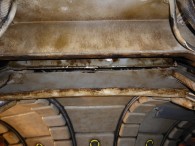Health and safety at work statistics published for 2016
HSE’s latest annual statistics have been published and show that while Britain continues to be one of the safest places to work in Europe, many workers are still being injured or made ill by work.
The statistics show that an estimated 30.4 million working days were lost due to work related ill health or injury in 2015/16 and the estimated costs to Britain of injuries and ill health due to current working conditions is £14.1 billion (2014/15 figures based on 2014 prices). For more information visit HSE’s Statistics Website.










